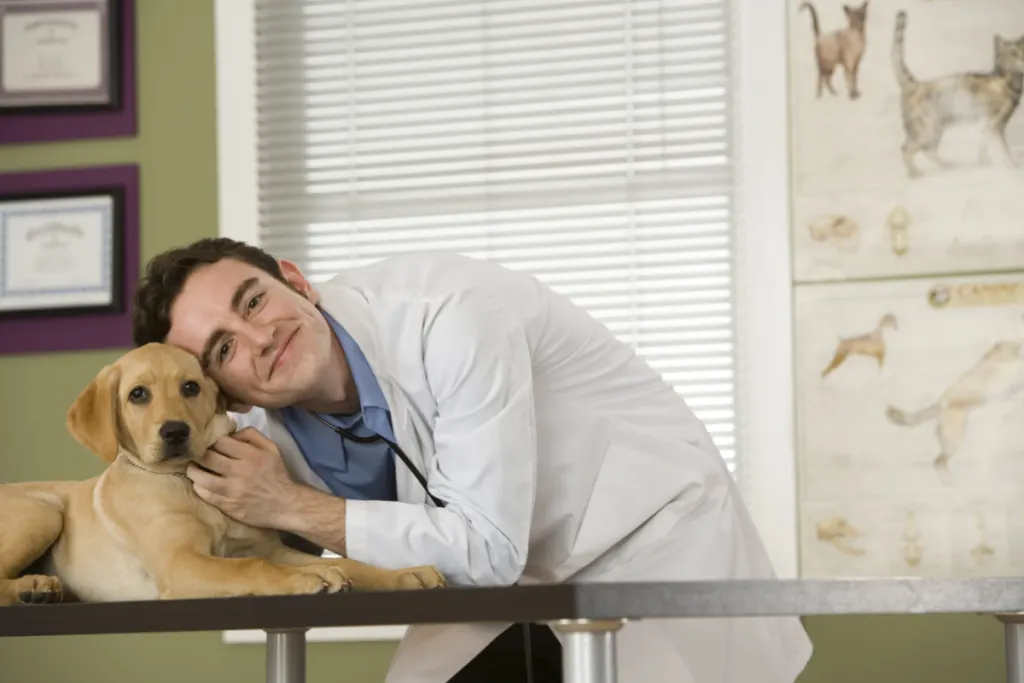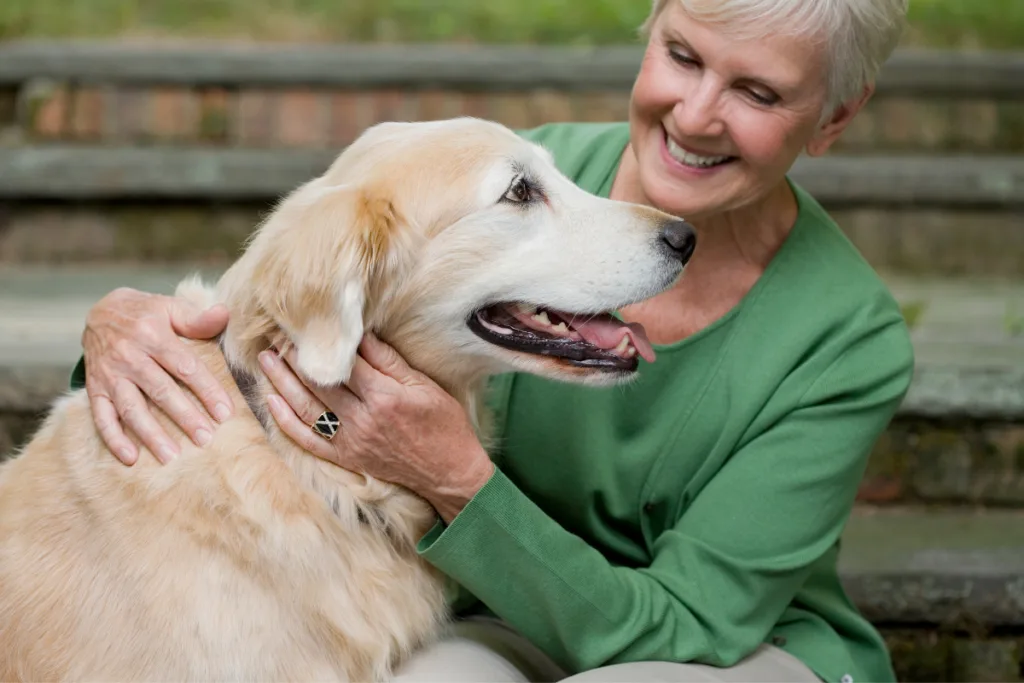Labrador Retrievers, with their warm personalities and boundless enthusiasm, have captured the hearts of dog lovers worldwide.
These beloved companions not only bring joy but also require responsible care and maintenance to ensure they lead healthy and fulfilling lives.
Whether you’re a proud owner of a Labrador or considering welcoming one into your home, it’s crucial to be well-informed about the best practices for their care and well-being.
In this comprehensive guide, we will explore the essential aspects of Labrador Retriever care and maintenance.
From grooming routines to exercise requirements and everything in between, these insights and recommendations will empower you to provide the utmost care and attention to your Labrador, fostering a loving and enduring bond.

Click Here to Jump to a Section
Nutrition and Feeding Guidelines
Proper nutrition is at the core of Labrador Retriever care.
Labradors are known for their hearty appetites and, like all dogs, have specific dietary requirements that need to be met to ensure their health and well-being.
Providing your Labrador with a balanced diet that includes high-quality dog food is essential.
Look for commercial dog foods that list meat as the primary ingredient and avoid those with excessive fillers or artificial additives.
Feeding your Labrador based on their age, size, and activity level is crucial to prevent underfeeding or overfeeding, which can lead to weight issues.
Regularly monitoring your dog’s body condition and consulting with your veterinarian can help you adjust their diet as needed to maintain a healthy weight.
Additionally, it’s important to provide fresh water at all times to keep your Labrador well-hydrated, which is especially vital in maintaining their overall health.
Exercise and Activity Requirements
Labrador Retrievers are known for their high energy levels and enthusiasm for physical activity.
To keep your Labrador happy and healthy, it’s crucial to provide them with regular exercise and mental stimulation.
Daily walks, playtime, and activities like fetch are great ways to keep your Labrador physically fit. Labradors also thrive on mental challenges, so consider puzzle toys and interactive games to engage their minds.
However, it’s essential to strike the right balance, as overexertion in young puppies can harm their developing joints.
Consult with your veterinarian to determine the appropriate exercise routine for your Labrador based on their age, size, and overall health.
A well-exercised Labrador is not only physically healthy but also mentally stimulated and content, making them a joy to have as a companion.
Grooming and Coat Care
Proper grooming and coat care are essential aspects of Labrador Retriever maintenance.
Labradors have a dense double coat that requires regular attention to keep it in good condition.
Regular brushing not only helps to remove loose hair and prevent matting but also distributes natural oils, keeping the coat healthy and shiny.
Bathing should be done on an as-needed basis, as excessive bathing can strip the coat of its natural oils.
Pay special attention to the ears, eyes, and paws, ensuring they are clean and free from dirt or debris.
Additionally, keeping your Labrador’s nails trimmed helps prevent discomfort and potential injuries.
Regular grooming sessions also provide an opportunity to check for any skin issues or lumps and bumps that may require veterinary attention.
Proper coat care not only keeps your Labrador looking their best but also contributes to their overall comfort and health.
Training and Obedience
Training and obedience are integral components of Labrador Retriever care.
Labradors are intelligent and eager to please, making them highly trainable dogs.
Early socialization and basic obedience training should begin during puppyhood to help your Labrador grow into a well-behaved and responsive companion.
Teaching commands like “sit,” “stay,” and “recall” not only promote good behavior but also ensure the safety of your Labrador and others.
Positive reinforcement methods, using treats and praise, are effective in motivating and reinforcing desired behaviors.
Consistency is key when it comes to training, and regular, short training sessions are more effective than occasional, long ones.
Additionally, engaging in training sessions is an excellent way to bond with your Labrador, strengthening your relationship and building trust.
A well-trained Labrador is not only a joy to be around but also a safer and more confident companion in various situations.
Healthcare and Veterinary Check-ups

Regular healthcare and veterinary check-ups are vital for your Labrador’s well-being.
Schedule annual veterinary visits for routine check-ups and vaccinations to ensure your Labrador remains in good health.
Vaccinations protect your dog from preventable diseases, and your vet can recommend a vaccination schedule tailored to your Labrador’s specific needs.
Along with vaccinations, preventive care includes flea and tick control, heartworm prevention, and routine dental care to keep your Labrador healthy and comfortable.
Regular vet visits also provide an opportunity to discuss any concerns or changes in your Labrador’s health, allowing for early detection and intervention in case of illness or injury.
A proactive approach to healthcare ensures that your Labrador leads a happy and healthy life.
Socialization and Behavioral Training
Socialization and behavioral training are essential for raising a well-adjusted and sociable Labrador.
Early socialization exposes your puppy to various people, animals, and environments, helping them become confident and adaptable companions.
Positive experiences during socialization reduce the risk of fear or aggression in adulthood.
Behavioral training, including obedience and manners, is equally crucial.
Positive reinforcement methods are effective in teaching your Labrador the right behaviors and commands, reinforcing their role as a well-behaved member of your family.
Socialization and training not only contribute to your Labrador’s good behavior but also help build a strong bond of trust and communication between you and your furry friend.
A well-socialized and trained Labrador is a joy to have around and can confidently navigate various social situations, enhancing their quality of life.
Safety and Environmental Considerations
Ensuring your Labrador’s safety is paramount, both at home and in public spaces.
Labrador Retrievers are curious by nature, and it’s essential to puppy-proof your home by removing hazards such as toxic plants, chemicals, and small objects that could be swallowed.
Properly secure fences and gates to prevent escapes, and use baby gates if necessary to restrict access to certain areas.
Supervise your Labrador during outdoor playtime to prevent them from getting into potentially dangerous situations.
When in public spaces, keep your Labrador on a leash and ensure they are wearing proper identification tags.
Additionally, be mindful of weather conditions, as Labradors are sensitive to extreme heat and cold.
Providing shade, fresh water, and protective gear as needed ensures your Labrador remains safe and comfortable in various environments.
Traveling with Your Labrador
If you’re planning to travel with your Labrador, whether for a vacation or other reasons, careful planning and preparation are essential.
Ensure your Labrador is comfortable with travel by gradually introducing them to car rides and crate training if necessary.
Pack essentials such as food, water, medications, and familiar bedding to make your Labrador feel at ease during the journey.
Research pet-friendly accommodations and activities at your destination, and check airline or transportation regulations if flying.
Remember to secure your Labrador safely in the vehicle with a seatbelt harness or a properly sized travel crate.
Traveling with your Labrador can be a rewarding experience when done thoughtfully, ensuring their comfort and safety throughout the journey.
Aging and Senior Care

As your Labrador ages, their care needs may change.
Senior Labradors may require special attention, including a modified diet, joint supplements, and regular veterinary check-ups to manage age-related health issues such as arthritis.
Adjusting exercise routines and providing comfortable bedding can help senior Labradors maintain their comfort and quality of life.
Monitoring their cognitive function and addressing any signs of cognitive decline is also essential.
Providing love and companionship as your Labrador ages is crucial, ensuring they enjoy their golden years to the fullest while maintaining their health and happiness.
